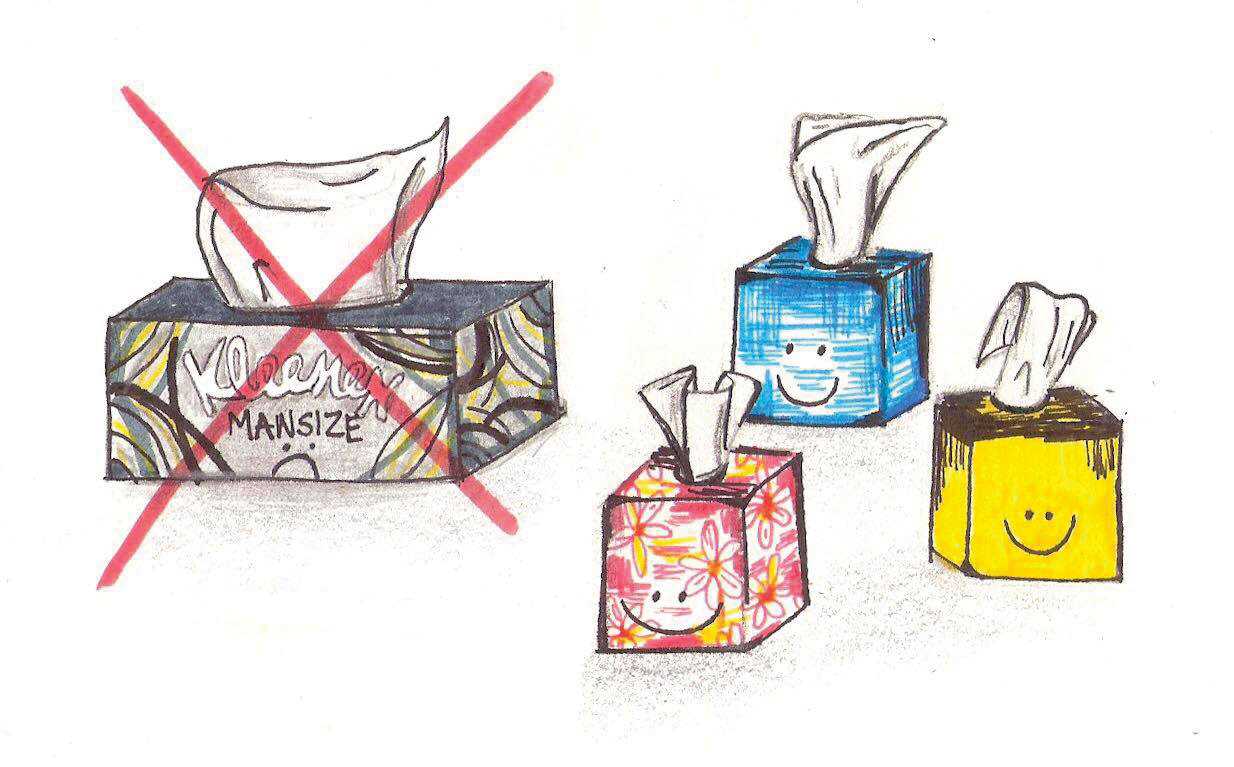
[dropcap]After[/dropcap] 62 years, Kleenex is renaming their “mansize” tissues after getting customer complaints of “sexist” nature.
Their “mansize” tissues will now be branded “Extra Large.” Kleenex For Men tissues were launched in 1956 and the company were pressured by public demand to change the name, despite not itself believing that the ‘mansize’ branding suggests or endorses gender inequality.
“The term “man sized” is kind of pointless, I mean I can still use man sized tissues even though I’m a woman. Extra-large is probably a more apt term to use for the product,” said DCU student, Emily Donnelly.
As described in their product description, Kleenex Mansize Tissues were created because “sometimes we need a little softness with our strength. Kleenex Mansize is comfortingly soft and strong so you can be confident it won’t let you down.”
Sam Smethers, chief executive at feminist campaign group, the Fawcett Society, praised the move, by saying: “Rebranding man sized tissues is not to be sneezed at. Removing sexist branding such as this is just sensible 21st century marketing. But we still have a long way to go before using lazy stereotypes to sell products is a thing of the past.”
Some people have queried the decision of Kleenex. A Twitter user stated that: “You do realise you don’t need to be a baby to use baby wipes? Or to be Irish to drink Irish whisky?”
Kimberly-Clark stated to The Telegraph that they never suggested that being soft and strong is an exclusively masculine trait, nor do they believe that the Mansize branding suggests or endorses gender inequality.
It comes amid a wider backlash against unnecessarily gendered products, with consumers and campaigners criticising manufacturers of razors, pens, confectionary and other products over “outdated” gender stereotyping.
Yorkie’s infamous “it’s not for girls” marketing campaign was launched in 2002 and was so successful the brand stuck to the message for the 10 years that followed.
The UK Advertising Standards Authority, which regulates adverts, has also said it will ban those that encourage gender stereotypes, such as women cleaning up after their family, or men failing to do housework.
Amy Donohoe
Image credit: Roise McGagh


